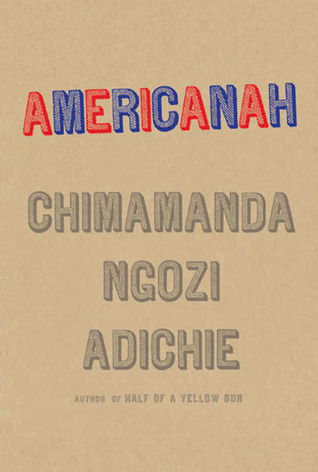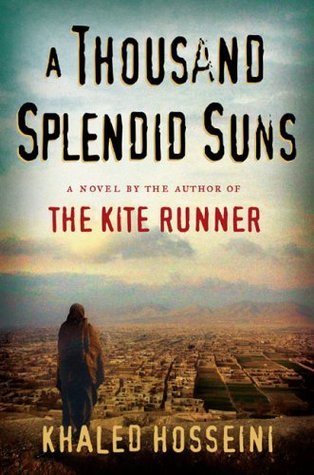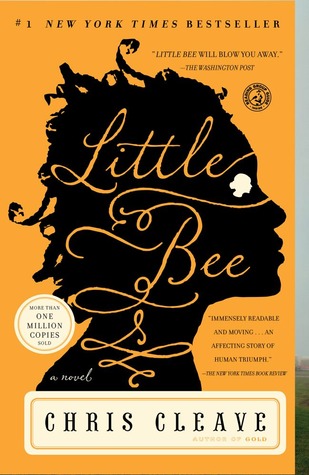17 books that will change your perspective about poverty this year

Many of us at Oxfam eat books up like we do candy from the communal office candy jar. So when a few of us started comparing notes on what books were on our list for 2017, we had an idea. What if we came together to share some of our favorite books with each other—and with you.
Lauren Levine is the direct marketing manager.
The only catch? The books have to relate to Oxfam’s mission to create lasting solutions to hunger, poverty and social injustice around the world.
All of the books below (with descriptions provided by their publishers) come recommended by at least one Oxfam staff member (and in some cases, many staff members!). Leave a comment if you’ve read one of these books or have other recommendations. Happy reading!
Non-fiction
-
1. Behind the Beautiful Forevers: Life, Death, and Hope in a Mumbai Undercity by Katherine Boo
From Pulitzer Prize-winner Katherine Boo, a landmark work of narrative nonfiction that tells the dramatic and sometimes heartbreaking story of families striving toward a better life in one of the twenty-first century’s great, unequal cities. In this brilliantly written, fast-paced book, based on three years of uncompromising reporting, a bewildering age of global change and inequality is made human.

-
2. The American Way of Eating: Undercover at Walmart, Applebee’s, Farm Fields and the Dinner Table by Tracie McMillan
When award-winning (and working-class) journalist Tracie McMillan saw foodies swooning over $9 organic tomatoes, she couldn’t help but wonder: What about the rest of us? Why do working Americans eat the way we do? And what can we do to change it? To find out, McMillan went undercover in three jobs that feed America, living and eating off her wages in each. Reporting from California fields, a Walmart produce aisle outside of Detroit, and the kitchen of a New York City Applebee’s, McMillan examines the reality of our country’s food industry in this “clear and essential” (The Boston Globe) work of reportage. Chronicling her own experience and that of the Mexican garlic crews, Midwestern produce managers, and Caribbean line cooks with whom she works, McMillan goes beyond the food on her plate to explore the national priorities that put it there.
Fearlessly reported and beautifully written, The American Way of Eating goes beyond statistics and culture wars to deliver a book that is fiercely honest, strikingly intelligent, and compulsively readable. In making the simple case that – city or country, rich or poor – everyone wants good food, McMillan guarantees that talking about dinner will never be the same again.

-
3. King Leopold’s Ghost: A Story of Greed, Terror, and Heroism in Colonial Africa by Adam Hochschild
In the 1880s, as the European powers were carving up Africa, King Leopold Ii of Belgium seized for himself the vast and mostly unexplored territory surrounding the Congo River. Carrying out a genocidal plundering of the Congo, he looted its rubber, brutalized its people, and ultimately slashed its population by ten million–all the while shrewdly cultivating his reputation as a great humanitarian. Heroic efforts to expose these crimes eventually led to the first great human rights movement of the twentieth century, in which everyone from Mark Twain to the Archbishop of Canterbury participated. King Leopold’s Ghost is the haunting account of a megalomaniac of monstrous proportions, a man as cunning, charming, and cruel as any of the great Shakespearean villains. It is also the deeply moving portrait of those who fought Leopold: a brave handful of missionaries, travelers, and young idealists who went to Africa for work or adventure and unexpectedly found themselves witnesses to a holocaust.

-
4. Nickel and Dimed: On (Not) Getting By in America Paperback by Barbara Ehrenreich
Millions of Americans work for poverty-level wages, and one day Barbara Ehrenreich decided to join them. She was inspired in part by the rhetoric surrounding welfare reform, which promised that any job equals a better life. But how can anyone survive, let alone prosper, on $6 to $7 an hour? To find out, Ehrenreich moved from Florida to Maine to Minnesota, taking the cheapest lodgings available and accepting work as a waitress, hotel maid, house cleaner, nursing-home aide, and Wal-Mart salesperson. She soon discovered that even the “lowliest” occupations require exhausting mental and physical efforts. And one job is not enough; you need at least two if you intend to live indoors.
Nickel and Dimed reveals low-wage America in all its tenacity, anxiety, and surprising generosity — a land of Big Boxes, fast food, and a thousand desperate strategies for survival. Instantly acclaimed for its insight, humor, and passion, this book is changing the way America perceives its working poor.

-
5. Development as Freedom Paperback by Amartya Sen
By the winner of the 1998 Nobel Prize in Economics, an essential and paradigm-altering framework for understanding economic development—for both rich and poor—in the twenty-first century.
Freedom, Sen argues, is both the end and most efficient means of sustaining economic life and the key to securing the general welfare of the world’s entire population. Releasing the idea of individual freedom from association with any particular historical, intellectual, political, or religious tradition, Sen clearly demonstrates its current applicability and possibilities. In the new global economy, where, despite unprecedented increases in overall opulence, the contemporary world denies elementary freedoms to vast numbers—perhaps even the majority of people—he concludes, it is still possible to practically and optimistically regain a sense of social accountability. Development as Freedom is essential reading.

-
6. How Change Happens by Duncan Green
Human society is full of would-be “change agents,” a restless mix of campaigners, lobbyists, and officials, both individuals and organizations, set on transforming the world. They want to improve public services, reform laws and regulations, guarantee human rights, get a fairer deal for those on the sharp end, achieve greater recognition for any number of issues, or simply be treated with respect.
Striking then, why so many universities lack programs for social activists, to which students can turn for advice and inspiration. Instead, scholarly discussions of change are fragmented with few conversations crossing disciplinary boundaries, rarely making it onto the radar of those actively seeking change.
This book bridges the gap between academia and practice, bringing together the best research from a range of academic disciplines and the evolving practical understanding of activists to explore the topic of social and political change. Drawing on many first-hand examples from the global experience of Oxfam, one of the world’s largest social justice NGOs, as well as the author’s insights from studying and working on international development, it tests ideas on how change happens and offers the latest thinking on what works to achieve progressive change.

-
7. Surrender or Starve: Travels in Ethiopia, Sudan, Somalia, and Eritrea by Robert D. Kaplan
Robert D. Kaplan is one of our leading international journalists, someone who can explain the most complicated and volatile regions and show why they’re relevant to our world. In Surrender or Starve, Kaplan illuminates the fault lines in the Horn of Africa, which is emerging as a crucial region for America’s ongoing war on terrorism.
Reporting from Sudan, Ethiopia, Somalia, and Eritrea, Kaplan examines the factors behind the famine that ravaged the region in the 1980s, exploring the ethnic, religious, and class conflicts that are crucial for understanding the region today. He offers a new foreword and afterword that show how the nations have developed since the famine, and why this region will only grow more important to the United States. Wielding his trademark ability to blend on-the-ground reporting and cogent analysis, Robert D. Kaplan introduces us to a fascinating part of the world, one that it would behoove all of us to know more about.

-
8. Freedom From Want: The Remarkable Success Story of BRAC, the Global Grassroots Organization That’s Winning the Fight Against Poverty by Ian Smillie
BRAC, arguably the world’s largest, most diverse and most successful NGO, is little known outside Bangladesh, where it formed in 1972. Author Ian Smillie predicts, however, that this is bound to change. BRAC s success and the spread of its work in health, education, social enterprise development and microfinance dwarfs any other private, government or non-profit enterprise in its impact on tens of thousands of communities in Asia and Africa. “Freedom From Want” traces BRAC s evolution from a small relief operation indistinguishable from hundreds of others, into what is undoubtedly the largest and most variegated social experiment in the developing world. BRAC s story shows how social enterprise can trump corruption and how purpose, innovation and clear thinking can overcome the most entrenched injustices that society can offer. It is a story that ranges from distant villages in Bangladesh to New York s financial district on 9/11, from war-torn Afghanistan to the vast plains of East Africa and the ruins of Southern Sudan. Partly an adventure story, partly a lesson in development economics, partly an examination of excellence in management, the book describes one of the world’s most remarkable success stories, one that has transformed disaster into development and despair into hope.

-
9. Half the Sky: Turning Oppression into Opportunity for Women Worldwide by Nicholas Kristof and Sheryl WuDunn
From two of our most fiercely moral voices, a passionate call to arms against our era’s most pervasive human rights violation: the oppression of women and girls in the developing world.
With Pulitzer Prize winners Nicholas D. Kristof and Sheryl WuDunn as our guides, we undertake an odyssey through Africa and Asia to meet the extraordinary women struggling there, among them a Cambodian teenager sold into sex slavery and an Ethiopian woman who suffered devastating injuries in childbirth. Drawing on the breadth of their combined reporting experience, Kristof and WuDunn depict our world with anger, sadness, clarity, and, ultimately, hope. Deeply felt, pragmatic, and inspirational, Half the Sky is essential reading for every global citizen.

Fiction
-
10. We Need New Names by NoViolet Bulawayo
An exciting literary debut: the unflinching and powerful story of a young girl’s journey out of Zimbabwe and to America. Darling is only ten years old, and yet she must navigate a fragile and violent world. In Zimbabwe, Darling and her friends steal guavas, try to get the baby out of young Chipo’s belly, and grasp at memories of Before. Before their homes were destroyed by paramilitary policemen, before the school closed, before the fathers left for dangerous jobs abroad. But Darling has a chance to escape: she has an aunt in America. She travels to this new land in search of America’s famous abundance only to find that her options as an immigrant are perilously few.

-
11. What Is the What by Dave Eggers
In a heartrending and astonishing novel, Eggers illuminates the history of the civil war in Sudan through the eyes of Valentino Achak Deng, a refugee now living in the United States. We follow his life as he’s driven from his home as a boy and walks, with thousands of orphans, to Ethiopia, where he finds safety — for a time. Valentino’s travels, truly Biblical in scope, bring him in contact with government soldiers, janjaweed-like militias, liberation rebels, hyenas and lions, disease and starvation — and a string of unexpected romances. Ultimately, Valentino finds safety in Kenya and, just after the millennium, is finally resettled in the United States, from where this novel is narrated. In this book, written with expansive humanity and surprising humor, we come to understand the nature of the conflicts in Sudan, the refugee experience in America, the dreams of the Dinka people, and the challenge one indomitable man faces in a world collapsing around him.

-
12. Americanah by Chimamanda Ngozi Adichie
From the award-winning author of Half of a Yellow Sun, a dazzling new novel: a story of love and race centered around a young man and woman from Nigeria who face difficult choices and challenges in the countries they come to call home.

-
13. Nervous Conditions by Tsitsi Dangarembga
This stunning first novel, set in colonial Rhodesia during the 1960s, centers on the coming of age of a teenage girl, Tambu, and her relationship with her British-educated cousin Nyasha. Tambu, who yearns to be free of the constraints of her rural village, especially the circumscribed lives of the women, thinks her dreams have come true when her wealthy uncle offers to sponsor her education. But she soon learns that the education she receives at his mission school comes with a price. At the school she meets the worldly and rebellious Nyasha, who is chafing under her father’s authority. Raised in England, Nyasha is so much a stranger among her own people that she can no longer speak her native language. Tambu can only watch as her cousin, caught between two cultures, pays the full cost of alienation.

-
14. A Thousand Splended Suns by Khaled Hosseini
Born a generation apart and with very different ideas about love and family, Mariam and Laila are two women brought jarringly together by war, by loss and by fate. As they endure the ever escalating dangers around them—in their home as well as in the streets of Kabul—they come to form a bond that makes them both sisters and mother-daughter to each other, and that will ultimately alter the course not just of their own lives but of the next generation.

-
15. Little Bee by Chris Cleave
From the author of the international bestseller Incendiary comes a haunting novel about the tenuous friendship that blooms between two disparate strangers—one an illegal Nigerian refugee, the other a recent widow from suburban London.

-
16. The Glass Palace: A Novel by Amitav Ghosh
Set in Burma during the British invasion of 1885, this masterly novel by Amitav Ghosh tells the story of Rajkumar, a poor boy lifted on the tides of political and social chaos, who goes on to create an empire in the Burmese teak forest. When soldiers force the royal family out of the Glass Palace and into exile, Rajkumar befriends Dolly, a young woman in the court of the Burmese Queen, whose love will shape his life. He cannot forget her, and years later, as a rich man, he goes in search of her. The struggles that have made Burma, India, and Malaya the places they are today are illuminated in this wonderful novel by the writer Chitra Divakaruni calls “a master storyteller.”

-
17. The Rent Collector by Camron Wright
Survival for Ki Lim and Sang Ly is a daily battle at Stung Meanchey, the largest municipal waste dump in all of Cambodia. They make their living scavenging recyclables from the trash. Life would be hard enough without the worry for their chronically ill child, Nisay, and the added expense of medicines that are not working. Just when things seem worst, Sang Ly learns a secret about the bad-tempered rent collector who comes demanding money – a secret that sets in motion a tide that will change the life of everyone it sweeps past.
